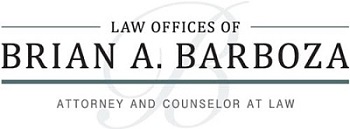When you owe a debt and you do not pay on it, the creditor can sue you. If the court issues a judgment against you, it means there is an order that you must pay the creditor. However, that is where the court ends its involvement.
The court will not collect the debt or force you to pay. The creditor must take steps to collect on the judgment. The Judicial Branch of California explains a creditor has several options for collecting on a judgment.
Liens
A creditor can go back to the court and ask to put a lien against your property. Liens can go against real estate you own or personal property. Real estate liens are more common because most people do not own personal property that is worth enough to go through the process of securing a lien.
With a lien, the creditor has the ability to take your property if you fail to pay. It can auction it off and take the proceeds.
Garnishments
The other option a creditor has is to garnish your wages or bank account. It must go to the court to get an order for garnishment. Once it has the order, it can submit it to your employer or bank and seize the money until it gets the full amount due.
There are rules on how much a creditor can take through garnishment so that you have some money left over. However, it may still present a hardship, and you cannot do anything about it once the court issues the order.
If you have an order for payment on a debt, it is in your best interest to find a way to make a payment plan with the creditor to avoid these collection options.

